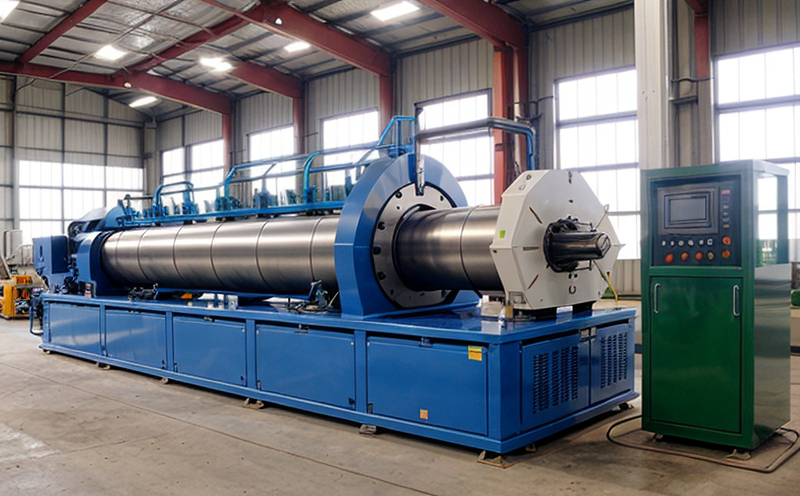ISO 24188 Quality Assessment of Recycled Secondary Raw Materials
The ISO 24188 standard provides a comprehensive framework for quality assessment and certification of recycled secondary raw materials. This service focuses on ensuring that recycled materials meet stringent specifications, thus promoting sustainability in manufacturing processes while maintaining product integrity.
Recycling is a critical component of modern industrial practices aimed at reducing environmental impact. The process involves converting waste materials into new materials or products. However, the quality and consistency of these secondary raw materials can vary significantly, which poses challenges for manufacturers seeking to incorporate recycled content into their production processes. ISO 24188 addresses this issue by offering a standardized approach to evaluating the quality parameters of recycled materials.
The service begins with thorough sample preparation, where we ensure that each specimen accurately represents the batch it is derived from. This step is crucial as it directly influences subsequent test results and interpretations. Once prepared, samples undergo a series of tests designed to assess various critical properties such as mechanical strength, chemical composition, particle size distribution, and moisture content.
For instance, mechanical testing may involve compression or tensile strength measurements using universal testing machines (UTMs). Chemical analysis typically employs spectroscopic methods like X-ray fluorescence (XRF) or atomic absorption spectrometry (AAS) to determine elemental concentrations. Particle size distribution is evaluated via laser diffraction techniques, providing detailed information about the aggregate properties of the material.
The results from these tests are then collated and analyzed against specified acceptance criteria outlined in ISO 24188. Compliance with these standards not only ensures that recycled materials meet industry expectations but also enhances overall product quality across diverse applications. By adhering to this stringent protocol, our clients can be confident about the performance attributes of their sourced recycled raw materials.
Implementing ISO 24188 helps companies comply with regulatory requirements while fostering a culture of continuous improvement in waste management practices. It supports sustainability initiatives by encouraging responsible resource use and reducing landfill contributions from industrial processes.
To illustrate the importance of this service, consider an example where a company aims to reduce its carbon footprint by incorporating recycled content into its product line. By leveraging ISO 24188, they can ensure that only high-quality recycled materials are used, thereby enhancing both environmental credentials and customer satisfaction levels.
In summary, implementing ISO 24188 for the quality assessment of recycled secondary raw materials offers numerous benefits including enhanced reliability, improved traceability, better decision-making capabilities, and increased stakeholder confidence. These advantages contribute significantly towards achieving organizational goals aligned with sustainable development principles.
Industry Applications
Recycling Process Efficiency & Lifecycle Testing:
- Construction sector: Reusing concrete aggregates to produce new concrete blends.
- Paper industry: Refining old paper products into pulp for manufacturing new paper products.
- Plastics sector: Reprocessing used plastics into pellets or flakes suitable for molding.
| Application | Description | Benefits |
|---|---|---|
| Construction sector | Reusing concrete aggregates to produce new concrete blends. | Reduces demand for virgin aggregate, conserves natural resources. |
| Paper industry | Refining old paper products into pulp for manufacturing new paper products. | Minimizes waste, reduces energy consumption during production processes. |
| Plastics sector | Reprocessing used plastics into pellets or flakes suitable for molding. | Avoids disposal issues associated with plastic waste; supports circular economy models. |
| Material Type | Main Properties Assessed | Testing Methods Used |
|---|---|---|
| Recycled concrete aggregates | Compressive strength, abrasion resistance, alkali-silica reactivity (ASR). | Universal Testing Machines (UTMs), Accelerated Cement Paste Tests. |
| Recycled paper pulp | Pulp brightness, tear index, opacity. | Spectrophotometric analysis, tensile testing. |
| Recycled plastic pellets | Melting point, density, impact resistance. | Differential scanning calorimetry (DSC), buoyancy tests. |
Customer Impact and Satisfaction
The implementation of ISO 24188 has several positive impacts on customers involved in recycling processes. It ensures that suppliers provide consistent, high-quality recycled materials which can lead to improved product performance and reliability for end-users.
For quality managers and compliance officers within these organizations, adopting this standard simplifies regulatory compliance efforts by providing clear guidelines on what constitutes acceptable recycled content. This clarity reduces ambiguity around product specifications and helps maintain brand reputation through consistent offerings across different markets.
R&D engineers benefit from having reliable data points when developing new products containing recycled materials. The standardized testing procedures allow them to make informed decisions regarding material selection, formulation adjustments, and process optimization.
Procurement teams gain enhanced transparency in supplier relationships since ISO 24188 requires detailed documentation of test results and certificates of analysis. This level of insight fosters trust among stakeholders and supports long-term strategic partnerships based on mutual understanding and shared goals.
In summary, by adhering to ISO 24188 during the recycling process evaluation phase, customers experience improved product quality, enhanced regulatory compliance, increased innovation potential, and strengthened supplier relationships – all contributing factors towards achieving sustainable business practices.
International Acceptance and Recognition
The acceptance of ISO 24188 extends beyond national borders due to its universal applicability across various industries. Many countries have adopted this standard as part of their national regulations or guidelines for managing recycled materials effectively.
A few notable examples include the European Union, which has integrated certain aspects of ISO 24188 into its Waste Framework Directive. Similarly, North American standards bodies such as ASTM International have referenced elements from this international standard in their own publications related to secondary raw material specifications.
Recognition by these global entities underscores the significance and relevance of ISO 24188 within the broader context of sustainable development goals pursued worldwide. It encourages adoption not only among developed nations but also developing countries looking to adopt more efficient waste management practices.
The widespread acceptance of this standard contributes significantly towards fostering international cooperation in recycling initiatives, promoting best practices globally, and driving innovation through shared knowledge exchange platforms facilitated by reputable organizations like ISO.





